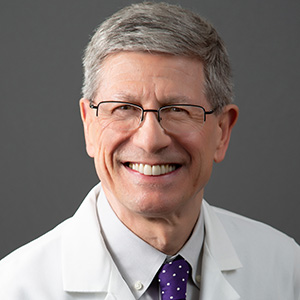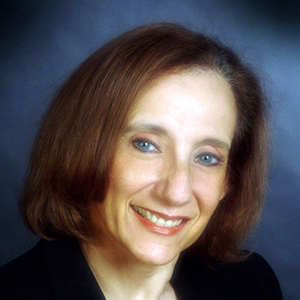A year of open access
It’s been just over a year since the journals published by the American Society for Biochemistry and Molecular Biology became fully open access. We asked the editors of the ASBMB’s journals how the transition has gone and what they’re planning for the future. Here’s what they told us.
A great year for JLR
By Nicholas O. Davidson and Kerry-Anne Rye
The move to open access in early 2021 went very smoothly thanks to the great work of ASBMB staff, our associate editors and our editorial board members.

Our seminal accomplishment in 2021 was the 32% increase in the journal impact factor to 5.922, the highest in a decade. Our associate editors and editorial board members have underpinned this terrific outcome by setting a high bar for article acceptance and reducing the average time to a first decision to just 14 days. Raising the journal impact factor and reducing the review time are two of our highest priorities, and we will continue to work on improving them even further in 2022.
We are delighted to note that two-thirds of the 20 most-cited articles were original research articles and perspectives. Compare this with the top 20 from the previous period, two-thirds of which were reviews. We interpret this shift to indicate that higher quality, original scientific research is the major driver of the improved impact factor. This is important because we want the journal to be seen as a destination for the best, most impactful original work in lipid research
In other positive developments, the amazing work of staff has given us the opportunity to establish a WeChat community in China. The staff also has assisted us in reaching out to leaders in lipid research in China through a special edition “Focus on China.”
We will continue to build links with the lipid research community in China in 2022 in acknowledgement of its emerging strengths in key lipid research areas. Authors from China accounted for 22% of submissions to the journal in 2020, and we predict continued growth in 2022 and beyond.
ASBMB staff also have coordinated our Twitter and social media presence, including four very popular Twitter takeovers by graduate students and postdoctoral fellows from across the globe.
In conclusion, 2021 was a landmark year for the journal, and we are grateful to the lipid research community for their continued support. We look forward to working with you all in 2022.
At JBC, can open science follow open access?
By Alex Toker
One of the reasons I agreed to become editor-in-chief of JBC was our collective decision to make the journal gold open access.

2021 was the right time to make the transition, given the ever-changing face of the publication industry, the implementation of Plan S and the requirement by many funding agencies that their sponsored research be published in open-access journals.
To achieve gold open access, we partnered with commercial publisher Elsevier; however, it is important to recognize that JBC remains, at its core, a journal “for scientists, run by scientists.” Full editorial control of all manuscripts remains with the editors at JBC. In addition, JBC is one of the few journals that performs data-integrity analysis on the papers it publishes.
But what does the future hold? The implementation of open access raises an equally important aspect of science publishing in 2021 and beyond: open science.
The open-science movement has gained significant traction over the past decade. The basic tenets are that manuscripts and primary data, both negative and positive, should be deposited in publicly accessible repositories, free to all.
At JBC, large data sets — such as proteomics, RNAseq, functional genomics and structural data — already must be deposited into one of many public repositories as a condition of manuscript acceptance. But current JBC policy states that all primary data should be made available by authors only upon request.
If the journal’s primary goal is to disseminate science and foster a community of scientists working in all areas of cell and molecular biology and biochemistry, and in my opinion that is its primary goal, then our associate editors and editorial board members must confront the ideals of open science and determine the steps for making them a reality.
I am looking forward to discussing these matters with the JBC community in 2022.
This was adapted from Toker’s first editorial as JBC’s top editor. Read it in full at jbc.org
Enjoy reading ASBMB Today?
Become a member to receive the print edition four times a year and the digital edition monthly.
Learn moreGet the latest from ASBMB Today
Enter your email address, and we’ll send you a weekly email with recent articles, interviews and more.
Latest in Opinions
Opinions highlights or most popular articles

Sketching, scribbling and scicomm
Graduate student Ari Paiz describes how her love of science and art blend to make her an effective science communicator.

Embrace your neurodivergence and flourish in college
This guide offers practical advice on setting yourself up for success — learn how to leverage campus resources, work with professors and embrace your strengths.

Survival tools for a neurodivergent brain in academia
Working in academia is hard, and being neurodivergent makes it harder. Here are a few tools that may help, from a Ph.D. student with ADHD.

Hidden strengths of an autistic scientist
Navigating the world of scientific research as an autistic scientist comes with unique challenges —microaggressions, communication hurdles and the constant pressure to conform to social norms, postbaccalaureate student Taylor Stolberg writes.

Black excellence in biotech: Shaping the future of an industry
This Black History Month, we highlight the impact of DEI initiatives, trailblazing scientists and industry leaders working to create a more inclusive and scientific community. Discover how you can be part of the movement.

Attend ASBMB’s career and education fair
Attending the ASBMB career and education fair is a great way to explore new opportunities, make valuable connections and gain insights into potential career paths.



